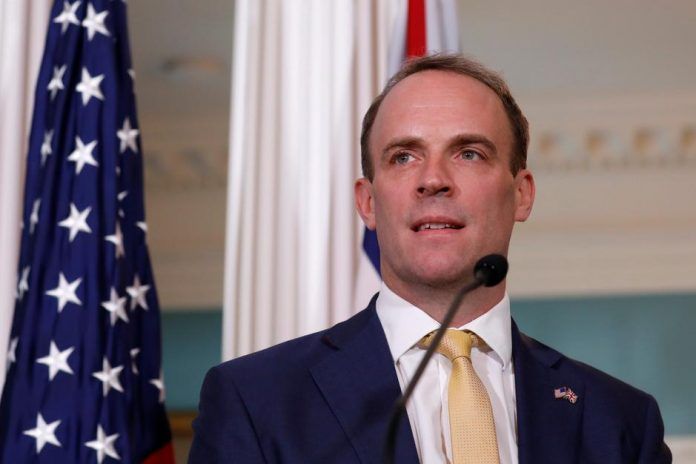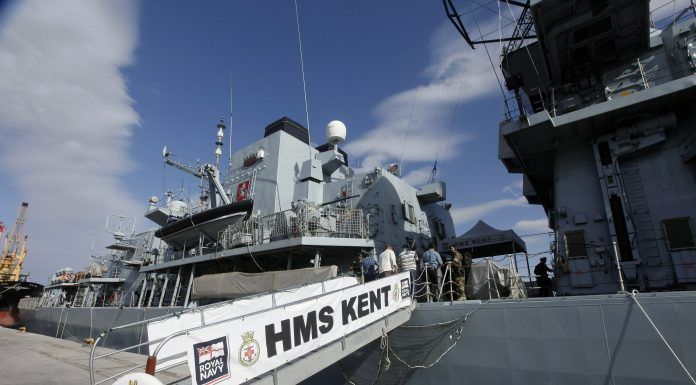LONDON, Aug 30 (Reuters) – British Foreign Minister Dominic Raab will call for more international support to protect shipping in the Strait of Hormuz when he meets his French and German counterparts later on Friday for talks about Iran.
Last month, Iran seized a British-flagged oil tanker in the strait, the Persian Gulf’s outlet to the open seas, in apparent retaliation for Britain’s seizure in Gibraltar of an Iranian ship accused of violating European sanctions by taking oil to Syria.
Britain joined a U.S.-led mission to escort merchant vessels through the Strait of Hormuz at the start of August but Germany and France declined to take part amid fears that it could increase the chance of open conflict with Iran.
“We…need the broadest international support possible to tackle the threats to international shipping in the Strait of Hormuz,” Raab said in a statement before he attends a meeting of European foreign ministers in Helsinki.
German Chancellor Angela Merkel said a possible separate European maritime defence operation would be discussed in Helsinki, though her foreign minister Heiko Maas previously acknowledged it would be slow to get off the ground.
French defence minister Florence Parly told AFP on Thursday that she would back an EU-led “dissuasive presence”.
Last week, Iran‘s President Hassan Rouhani said international waterways would be less secure if his country’s oil exports faced complete sanctions.
Raab reiterated Britain’s commitment, alongside Germany and France, to a 2015 nuclear deal that U.S. President Donald Trump pulled out of last year, reimposing sanctions on Iran.
“The nuclear deal is the only deal on the table that prevents Iran from getting a nuclear weapon and we will continue working together to encourage Iran to uphold the agreement in full,” Raab said.
The 2015 deal between Iran and six world powers, reached under former U.S. President Barack Obama, aimed to curb Iran‘s disputed uranium enrichment programme in exchange for the lifting of many international sanctions on Tehran.
Trump said on Monday at a G7 summit in Biarritz, France, that he might be willing to meet Rouhani in the coming weeks to end confrontation over the deal.
(Reporting by David Milliken; Editing by Angus MacSwan)



